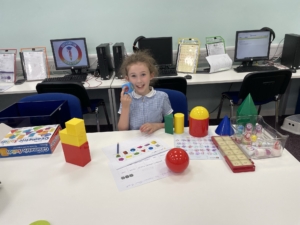Teaching Students with SpLD Series
by Jan Thomson-Long
Specialist Tuition
“Don’t take ‘no’ for an answer. Keep knocking down walls until someone says ‘yes.’”
~ Chelsea Handler
 When students are in a class at school they need to be taught as a group. Teachers can differentiate their lessons by providing scaffolding in the form of additional information, physical manipulatives, prompt sheets to name just a few. Lessons can also be differentiated by outcome, in terms of a student being required to answer a smaller number of questions (which unfortunately means they are getting less practice) or different levels of questions dependent upon ability.
When students are in a class at school they need to be taught as a group. Teachers can differentiate their lessons by providing scaffolding in the form of additional information, physical manipulatives, prompt sheets to name just a few. Lessons can also be differentiated by outcome, in terms of a student being required to answer a smaller number of questions (which unfortunately means they are getting less practice) or different levels of questions dependent upon ability.
Tuition is different to that. Tuition is a form of teaching that ought to be personalized to the student. I say ought because there are many organisations that claim to offer tuition, so you do need to check what your child will be receiving. Some just hand out worksheets which you’re even expected to mark, and others are solely on a computer. Don’t get me wrong, there is a place for both, but not as the only method of delivery. Tuition ought to really be provided by qualified teachers (in my opinion) since we know how to adapt our methods and utilise various resources to move the student’s learning on. So, if you have a qualified teacher then you at least have a minimum level of expertise.
Specialist tuition should be being delivered by someone qualified in the specific difficulty that your child has, be that dyslexia or dyscalculia. Specialist teachers have undergone further training usually after years of classroom teaching and have either a level 5 or level 7 specialist qualification. I personally did a level 5 qualification in dyslexia and level 7 in dyscalculia, followed by a level 7 assessors PG Diploma. Each course takes a minimum of a year to complete, and they are extremely expensive which is one of the reasons schools do not have suitably qualified staff.
A specialist lesson will be designed specifically for your child based on their profile of needs. For example, if their profile shows that they need support with phonemic awareness then part of the lesson will be devoted to that, explicitly the sounds that they need. Likewise for memory, they may need more work on auditory memory than visual in which case the lesson will be targeted towards the auditory aspects. Older students might need study skills, again that will be delivered in a way identified as suitable for someone with their cognitive profile. Metacognition is an essential aspect of working with students who have specific difficulties. They are coached on how they learn so that they can transfer the skills to other learning throughout their life.
Often diagnostic reports will state that a student who has been identified as dyslexia or dyscalculic ought to receive specialist tuition. As schools tend not to have access to specialist tutors you may need to apply for an Education Health Care Plan (EHCP) for them. For details of that process please see my other blogs.
https://spldassessment.com/2023/05/08/does-my-child-need-an-education-and-health-care-plan-ehcp/



